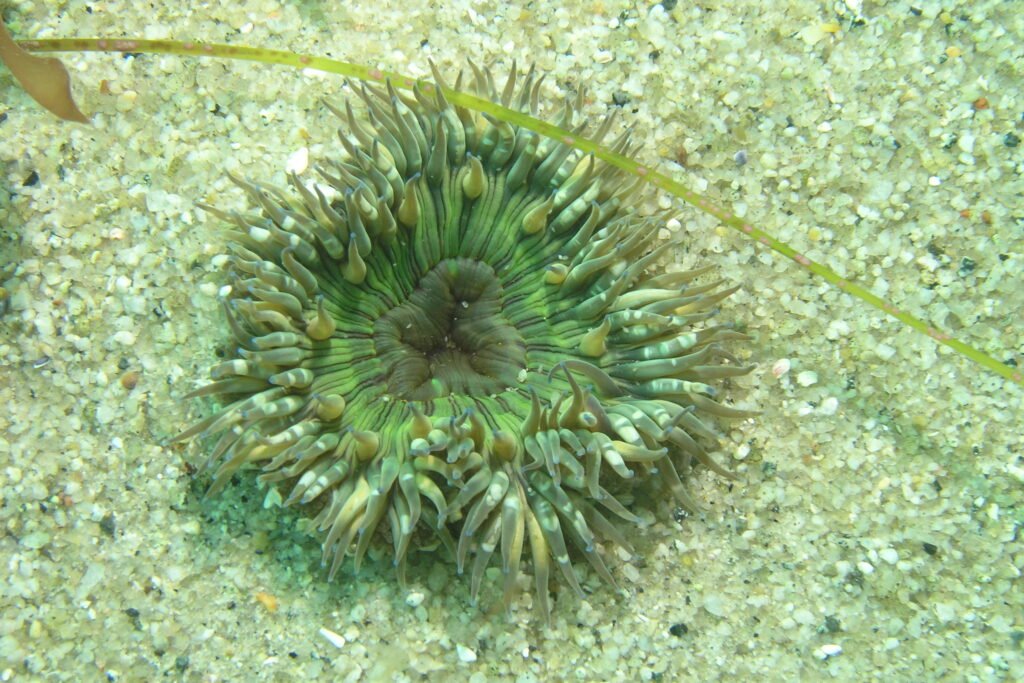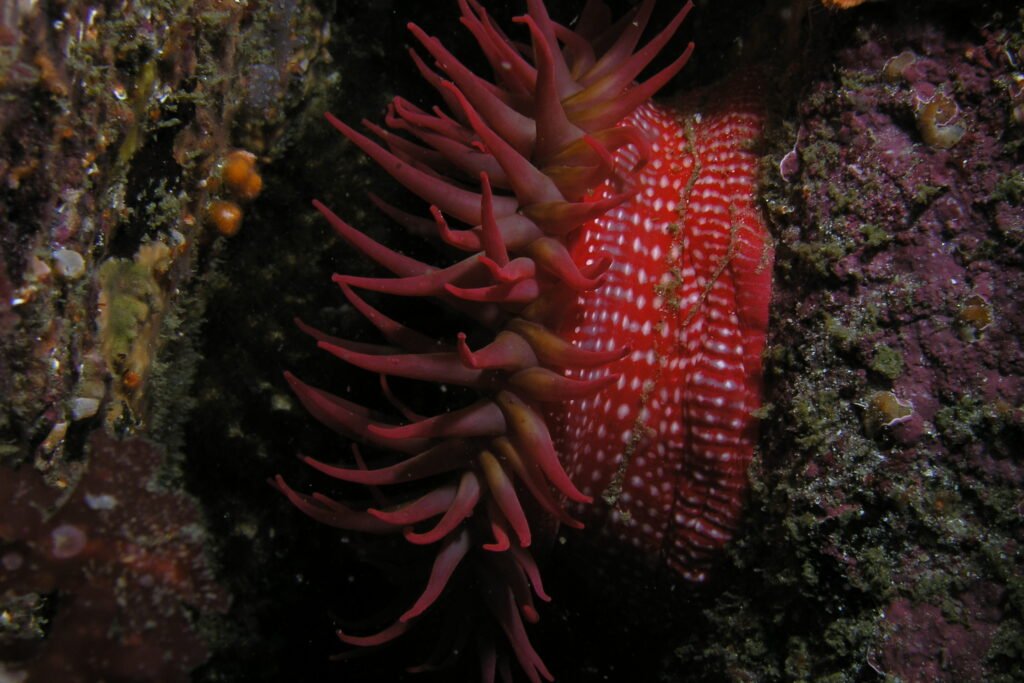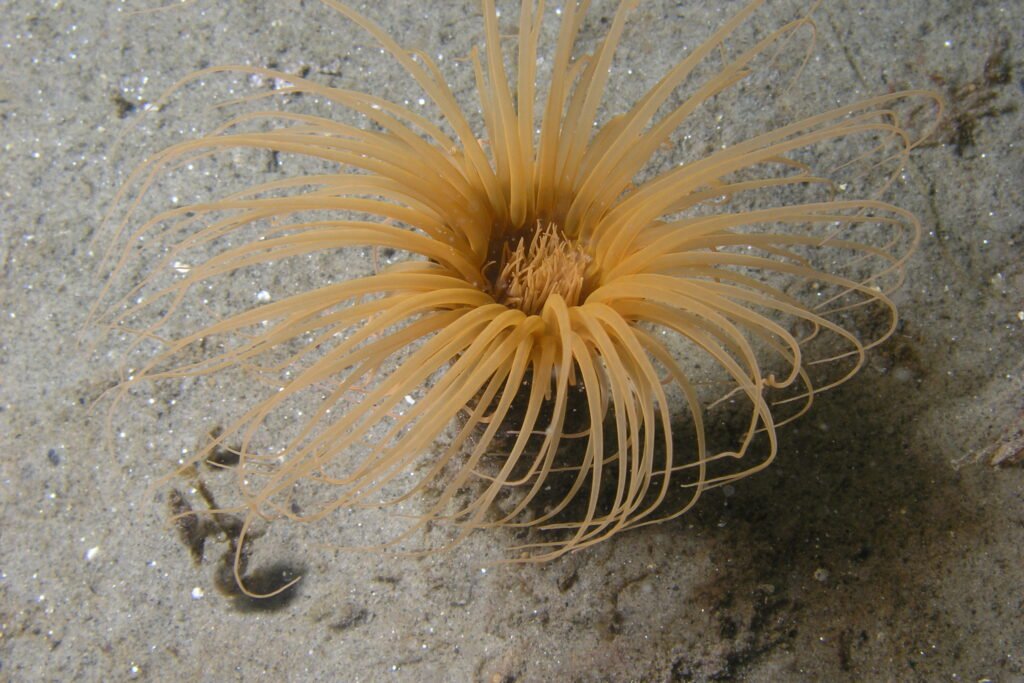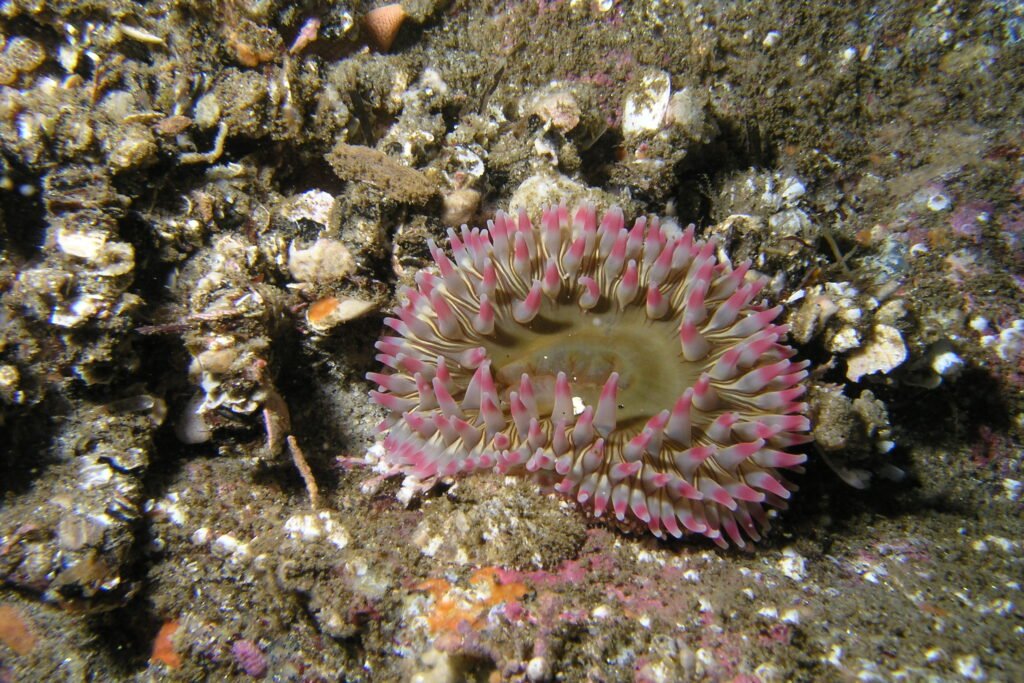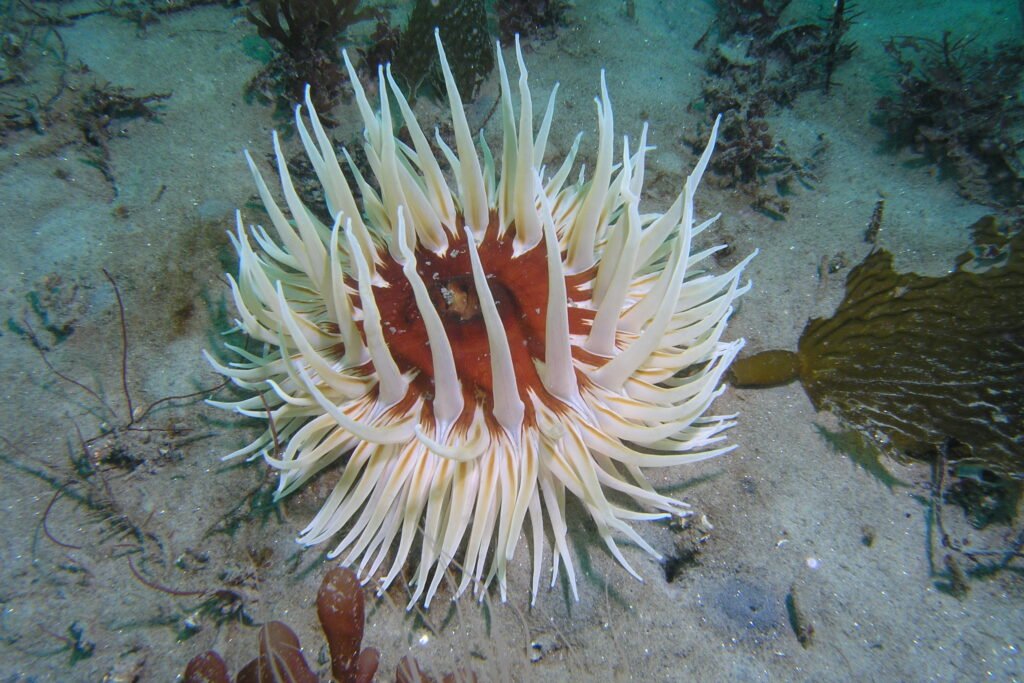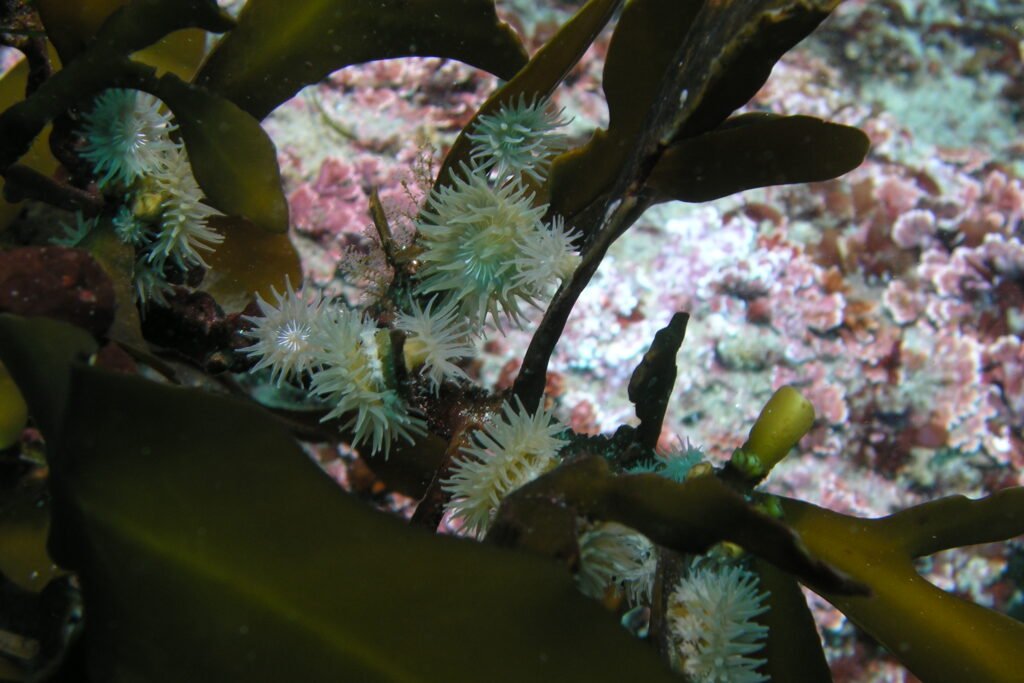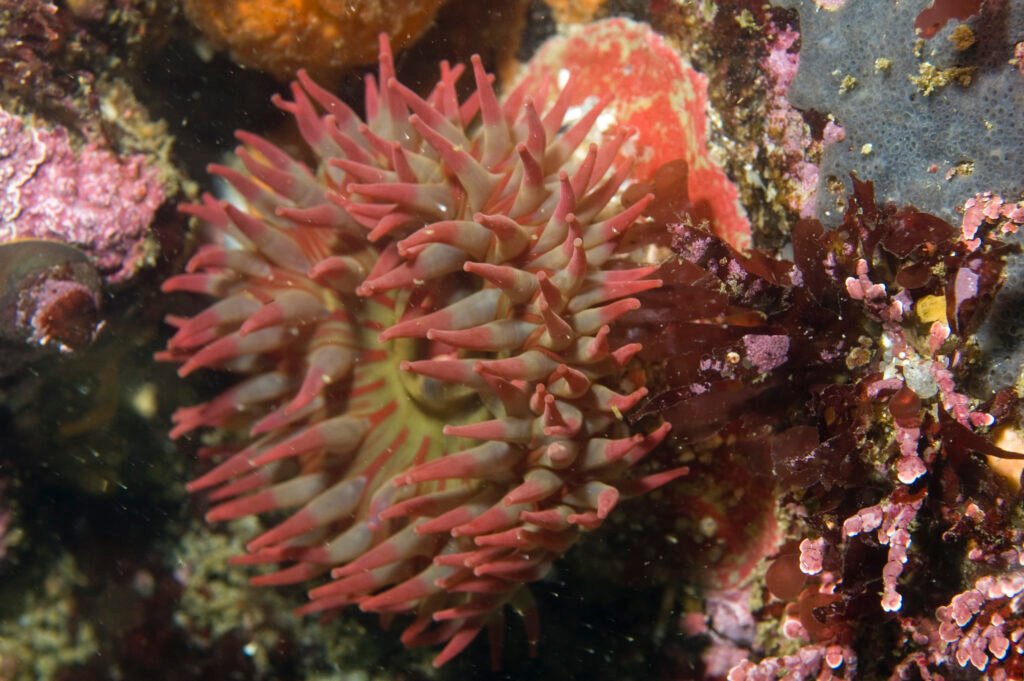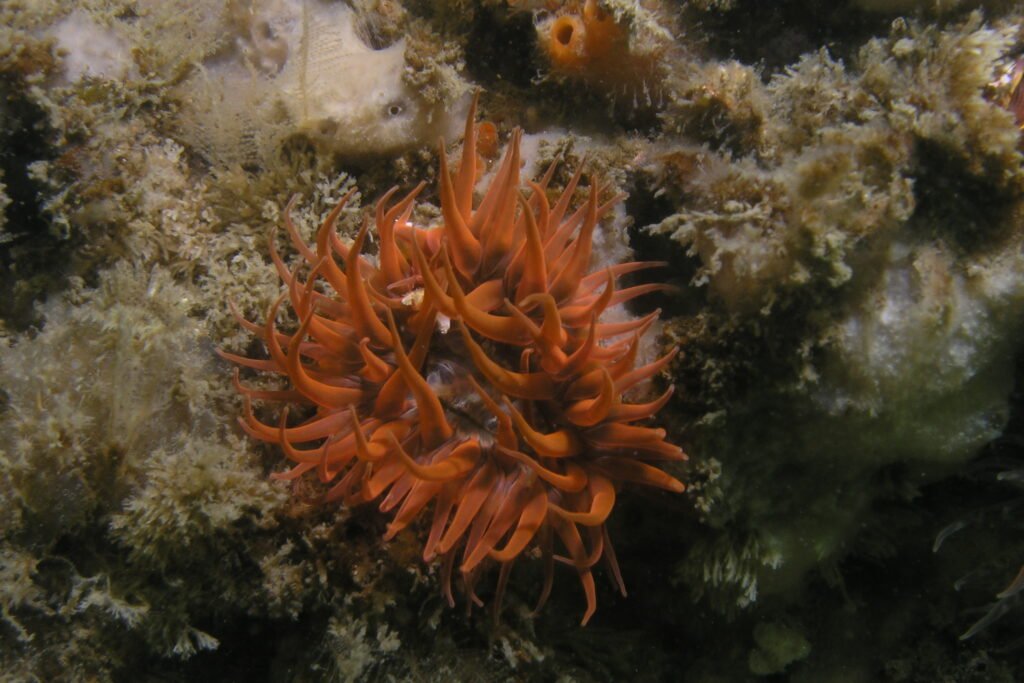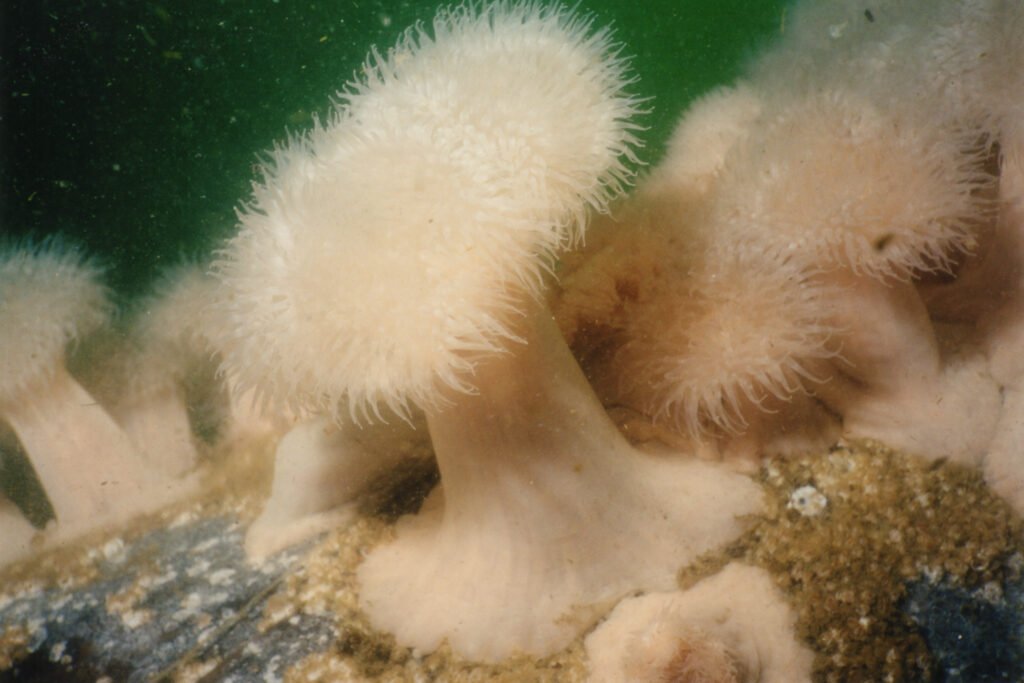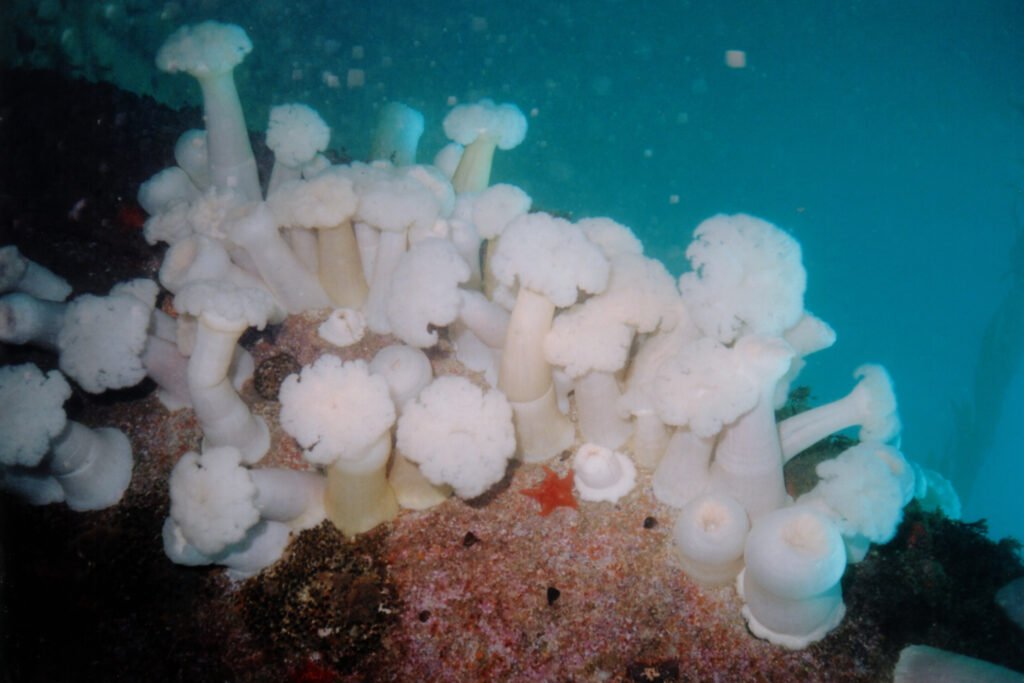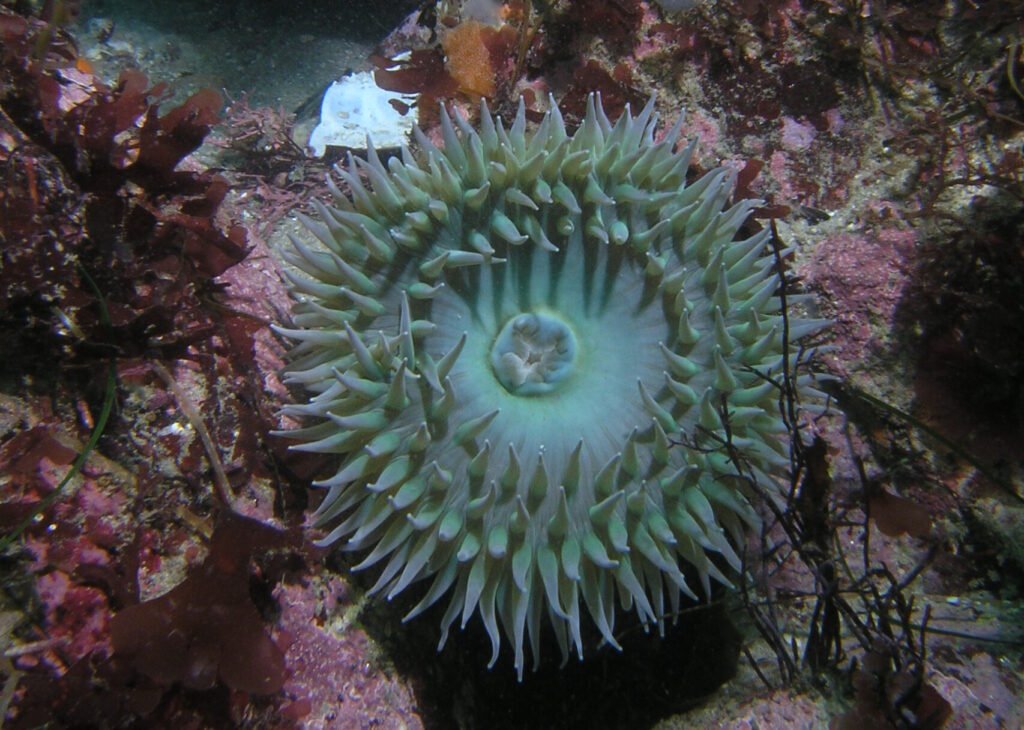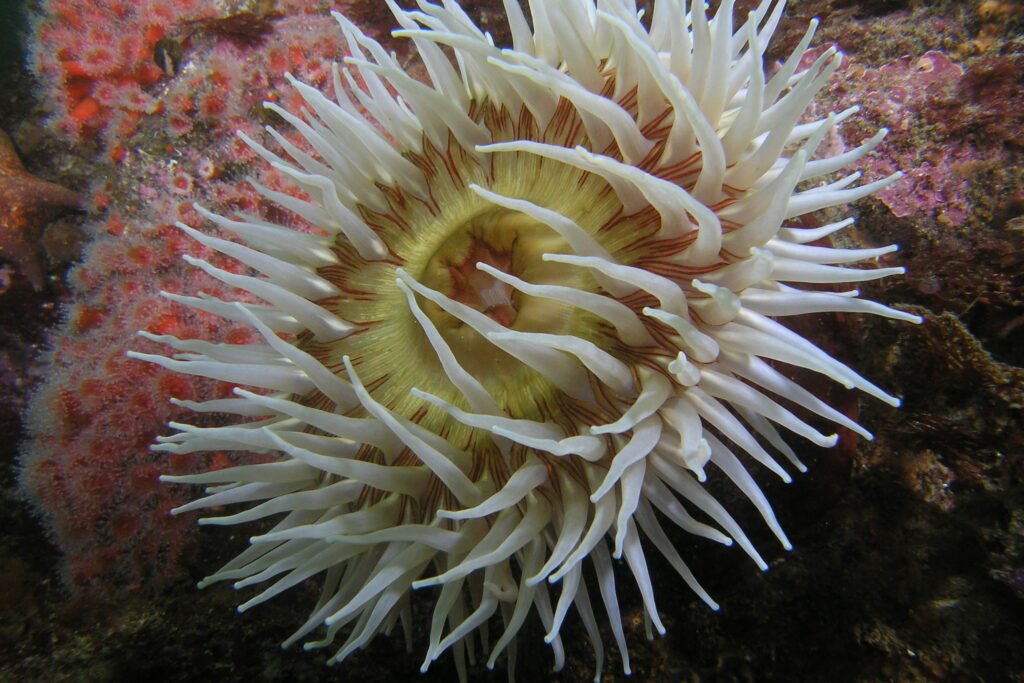Physical Description
Sunburst anemones (Anthopleura sola) are small to medium-sized invertebrates with a diameter ranging from 2 to 10 centimeters. They have a muscular column topped with a ring of short, stout tentacles, often colored in shades of green, brown, or gray.
Habitat and Geographical Range
Sunburst anemones are commonly found along the Pacific coast of North America, from Alaska to California. They inhabit rocky intertidal zones and tide pools, where they attach themselves to substrates such as rocks or shells.
Diet and Reproduction
As carnivorous organisms, sunburst anemones primarily feed on small fish, crustaceans, and plankton. They capture prey using their tentacles, which are armed with stinging cells called nematocysts. Reproduction usually occurs through external fertilization, where eggs and sperm are released into the water column, resulting in the development of larvae.
Physical Threat to Humans
While sunburst anemones are not considered dangerous to humans, they possess venomous nematocysts in their tentacles that can cause irritation or allergic reactions if touched. It’s advisable to avoid direct contact with these creatures to prevent any potential discomfort.
Meta Description
Learn about sunburst anemones: their size, habitat, diet, reproduction, and potential risks. Understand their role in marine ecosystems.
